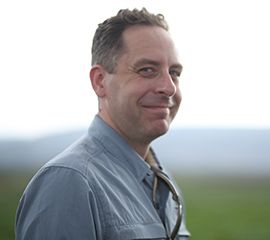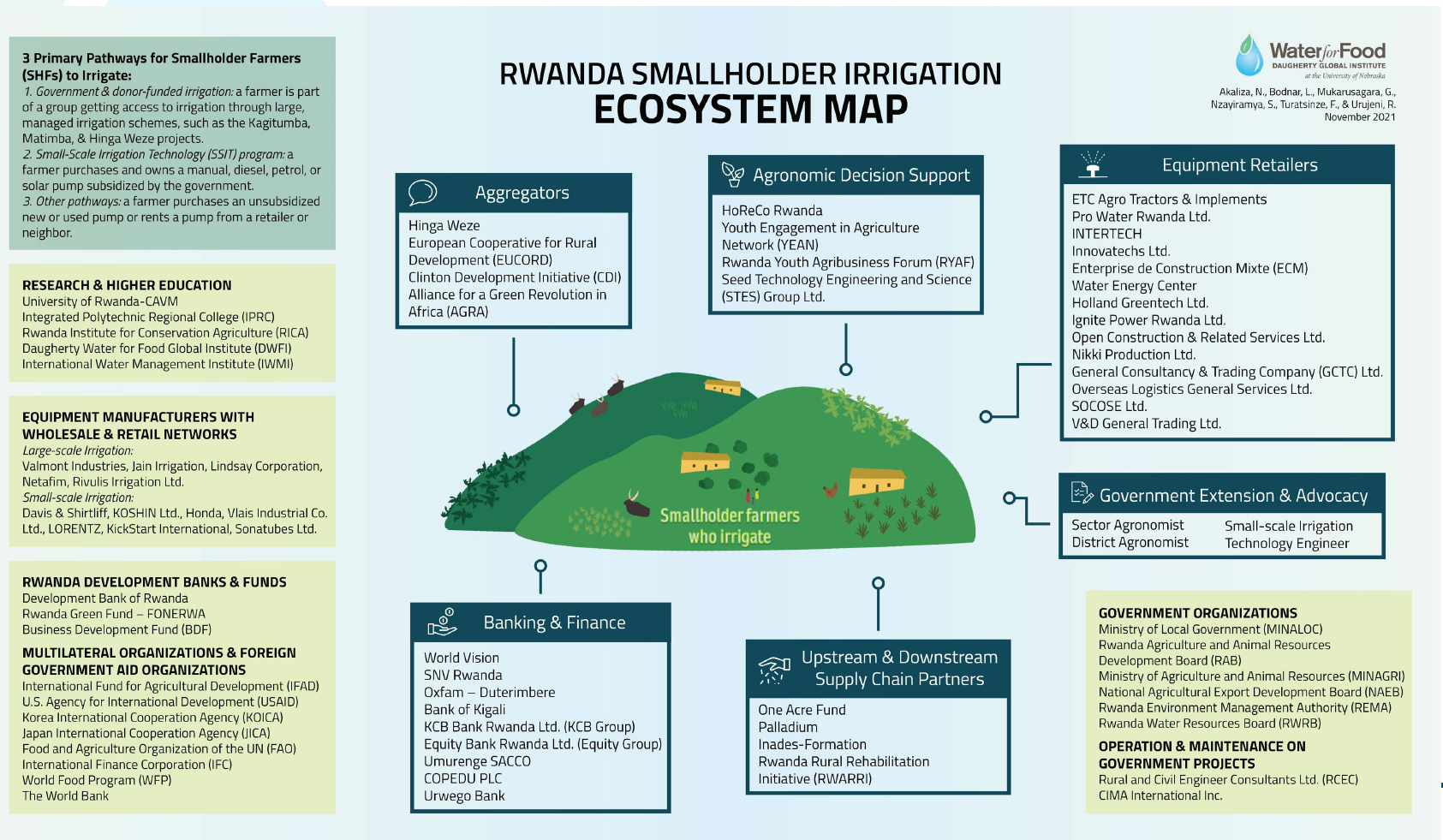Listen here on Spotify | Listen here on Apple Podcast
Episode released on January 23, 2025
Episode recorded on August 27, 2024

Nick Brozovic is the Director of Policy at the University of Nebraska's Daugherty Water for Food Global Institute and is also a Professor of Agricultural Economics at the University of Nebraska at Lincoln.
Highlights | Transcript
Daugherty Water for Food Global Institute (DWFI) was established from a gift by Robert B. Daugherty in Nebraska, the founder of Valmont, a large irrigation company in Nebraska to improve food security with less pressure on water resources in developing countries.
DWFI is a university-based research organization that spans smallholder and subsistence irrigation to large corporate, technologically advanced farms.
DWFI works with government sectors, non-government organizations (NGOs), and private industry.
DWFI: 20 staff, 140 faculty fellows, 40 graduate students, and 26 global fellows.
DWFI includes policy, industry, investors, and environmental groups.
DWFI people are not implementers but convene and catalyze change and facilitate interations among groups.
Univ. Nebraska: much research on High Plains aquifer. Sustainable development of irrigation in Nebraksa in contrast with central and Southern High Plains (McGuire and Strauch, 2023).
High recharge rates in Nebraska Sand Hills with stable groundwater levels throughout much of Nebraska.
Food security requires irrigation for climate adaptation as shown by crop yield data.
Global mantra: running out of water. World Bank report emphasizing underdevelopment of groundwater in Sub-Saharan Africa. The Hidden Wealth of Nations : The Economics of Groundwater in Times of Climate Change.
Water is a local issue, location and timing of water use critical to value of water making it difficult to generalize.
Legal and regulatory framework, water rights, value in land markets. Cultural and social values of water.
Groundwater governance: multigenerational farming operations, motivation for curtailing water use.
Many smallholder farmers do not want their children in farming, want them to move to the cities.
Concerns about solar powered irrigation leading to aquifer overexploitation (Risks from Solar Powered Groundwater Irrigation: Balasubramanya et al., Science, 2024)
Sub-Saharan Aqfirca, wet season in Horn of Africa getting less wet, supplemental irrigation, not permanently installed irrigation like FAO maps.
Projects: Rwanda: working with Intl. Fund for Agricultural Development (IFAD), work with people providing irrigation products and services to farmers, assess supply chains, constraints. (Chandra et al., AWM, 2023)
Historically irrigation development was public sector but now is mostly privately funded.
Irrigation provision, buy pump, rent pump and irrigation system, irrigation service business models.
Irrigation as a service.
DWFI to lead new $19 million USAID Feed the Future Innovation Lab:
Feed the Future countries are countries that are of importance to the U. S. Government for achieving U. S. global food security strategy and sustainable development goals. 20 countries in Africa, Asia, Latin America, and Caribbean.
Innovation Lab for Irrigation and Mechanization Systems: ILIMS: SSA: Ghana, Niger, Ethiopia and Rwanda. South Asia, Nepal; Latin America, Guatemala and Honduras.
Current Request for Applications for Feed the Future ILIMS
ILIMS Director: Nicole Lefore
Goal: increase nutritional security and income of smallholder farmers, grow crops for higher value markets and value chains, and then take the money and use that to buy more nutritious food.
Multi cropping seasons: e.g., cereals 1 season, vegetables another season, wet and dry season irrigation.
Rwanda: could grow crops in the dry season, capacity building. Horticultural crops, export to Europe.
Differences between Africa and India: high tech companies in India, technologies 10 – 50 times cheaper in India.
Nick Brozovic: attending World Water Week: Theme for 2024: Bridging Borders, Water for a Peaceful and Sustainable Future, water and sanitation, urban water issues.





